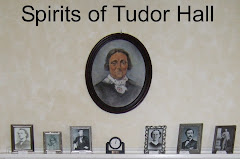by Tom Fink
From time to time Junius Brutus Booth displayed signs of brief insanity. At such times those close to him tried to help him. The Charleston Courier for March 12, 1838 reported one of these incidents:
“Mr. Booth went on board the…packet, in a company with his friend, Mr. Flynn, the well-known Comedian, on Wednesday evening last [7 March], and on the passage showed evident symptoms of insanity, but being carefully watched by his anxious friend, had no opportunity of escaping his vigilant eye, and appeared to improve gradually under Mr. Flynn’s friendly care, until the afternoon of Friday last when 36 miles N.E. of Frying Pan Shoals, during dinner, when Mr. Booth excused himself from the table, took advantage of his friend’s absence, and lowered himself from the promenade deck, which attracted the attention of the men. Capt. Pennoyer, Mr. Flynn, and the rest of the passengers being called from dinner, endeavored to persuade him to return on board, when he not only refused, but immediately plunged into the ocean. Capt. Pennoyer instantly stopped the boat, which was then going at the rate of eleven miles an hour, and by his prompt exertions and presence of mind, a safety buoy was thrown over, and a safety boat immediately launched. The gallant Captain took the helm, and Mr. Booth, though then half a mile from the boat, was rescued from a watery grave.”
Junius had asked Mr. Flynn to alert him when they approached the area where William Augustus Conway, a failed tragedian, had drowned himself. William Conway came to America in 1823 from England and had been a favorite actor at the Covent Garden Theatre in London. Because of the extremely fast popularity he gained in London, some of his jealous professional contemporaries ridiculed him publicly and conspired to drive him from his position on the stage. Because of his sensitive nature he chose to pursue his profession in America. In 1826, William decided to quit the stage and study Divinity. After three years he met with some personal opposition from the then Bishop of New York “from the fact of his having been an actor.” During his voyage to Savannah to visit Bishop White “to take orders in the church,” Conway suddenly had a fit of despondency and jumped from the deck of the ship and drowned himself.
When Junius reached the spot where Conway had drowned, he jumped overboard with a “message” for Conway. As Flynn pulled Junius into the safety boat, Booth warned, “I say Tom, look out: you’re a heavy man, be steady; if the boat upsets we’ll all be drowned.”






